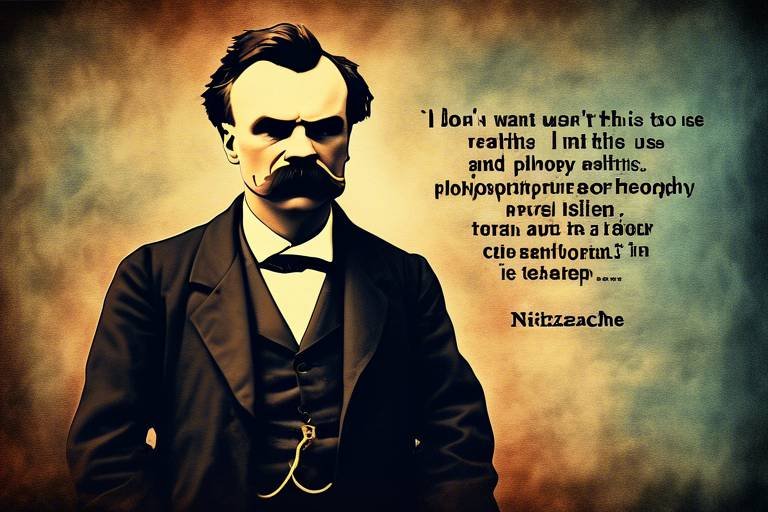Is There a Philosophical Approach to Love?
Love is one of the most profound emotions we experience as human beings, and it has been the subject of philosophical inquiry for centuries. But have you ever stopped to wonder if there’s a philosophical approach to understanding this complex feeling? The exploration of love through a philosophical lens allows us to dissect its many layers, revealing not just what love is, but also how it influences our relationships and shapes our existence. From romantic love that sweeps us off our feet to the deep bonds of friendship and the essential love we must cultivate for ourselves, each form of love carries its own significance and implications.
Philosophers have long grappled with the essence of love, asking questions that delve into its nature and purpose. Is love merely a biological urge, or does it transcend the physical realm? Can love exist without suffering, or is it inherently tied to the pain of longing and loss? These questions are not just academic; they resonate with our lived experiences, prompting us to reflect on our own relationships and the ways in which love shapes our lives.
At its core, a philosophical approach to love encourages us to think critically about our emotional connections. It challenges us to consider how love can be both a source of immense joy and profound sorrow. By examining love through various philosophical frameworks, we can gain a deeper understanding of its transformative power. For instance, the ancient Greeks categorized love into different types—eros (romantic love), philia (friendship), and agape (selfless love)—each offering unique insights into how we relate to others.
Moreover, this philosophical exploration doesn't just stop at definitions; it extends to the implications of love in our lives. Love can drive us to become better individuals, inspire acts of kindness, and foster a sense of community. Yet, it also raises ethical considerations about our responsibilities toward those we love. Are we obligated to love in return? How do we balance our needs with those of others? These questions invite us to engage in a dialogue about love that is both personal and universal.
In essence, a philosophical approach to love enriches our understanding of this multifaceted emotion. It encourages us to look beyond the surface and appreciate the deeper connections we share with others. By contemplating love’s various dimensions—its joys, challenges, and ethical implications—we can cultivate a more meaningful existence filled with authentic relationships. So, the next time you find yourself caught in the whirlwind of love, remember that there’s a rich tapestry of thought waiting to be explored, offering insights that can transform not just how we love, but how we live.
- What is the philosophical definition of love? Philosophically, love can be described as a profound emotional connection that encompasses various forms, including romantic, platonic, and self-love, each with unique characteristics and implications.
- How do different philosophers view love? Different philosophers, such as Plato and Aristotle, have offered varied perspectives on love, ranging from its role in personal growth to its significance in friendship and community.
- Can love be ethical? Yes, love has ethical dimensions that involve questions of obligation, consent, and the balance of self-interest with the well-being of others.

The Nature of Love
Understanding the essence of love is akin to trying to catch smoke with your bare hands; it’s elusive, multifaceted, and often defies simple definitions. Love is not just one thing; it’s a rich tapestry woven from various threads that include romantic love, platonic love, and self-love. Each type of love carries its own significance and implications for human experience, shaping how we connect with ourselves and others.
At its core, love is often characterized by feelings of deep affection, attachment, and care. It can be spontaneous or cultivated, fleeting or enduring. Romantic love, for instance, is often celebrated in literature and art, characterized by passion and desire. It’s that exhilarating feeling when you lock eyes with someone special, a spark igniting a connection that feels electric. However, it’s crucial to recognize that romantic love isn’t the only form that love can take. Platonic love, on the other hand, is the deep bond shared between friends, built on mutual respect, trust, and shared experiences without the romantic undertones.
Then there’s the often-overlooked yet profoundly essential concept of self-love. In a world that constantly pushes us to seek validation from others, self-love reminds us that our relationship with ourselves is foundational. It’s about recognizing our worth, embracing our flaws, and taking the time to nurture our own well-being. Without self-love, it becomes challenging to form healthy relationships with others. It’s like trying to fill a cup from an empty well—there’s simply nothing to give.
To truly appreciate the nature of love, we must also consider its transformative power. Love has the ability to inspire change, motivate personal growth, and foster resilience. It can be a source of immense joy, but it can also lead to heartache and vulnerability. This duality is what makes love such a compelling subject of discussion. Just as a rose has thorns, love can bring both beauty and pain. Yet, it is through these experiences that we often learn the most about ourselves and others.
Moreover, love can manifest in various forms across different cultures and societies, each with its own nuances and traditions. For instance, in some cultures, familial love is held in the highest regard, emphasizing loyalty and duty towards family members. In others, romantic love may take precedence, celebrated through grand gestures and passionate declarations. This diversity in understanding love serves as a reminder that while the emotion itself may be universal, its expression is anything but.
In summary, love is a complex and dynamic force that influences human relationships in profound ways. It is not confined to a single definition or expression but rather encompasses a spectrum of feelings and connections. Whether it’s the thrill of a new romance, the comfort of a deep friendship, or the nurturing of one’s own spirit, love is an essential part of what it means to be human.
- What are the different types of love? Love can be categorized into various forms, including romantic love, platonic love, and self-love, each with unique characteristics and implications.
- How does love impact our lives? Love can inspire personal growth, foster connections, and provide emotional fulfillment, but it can also lead to vulnerability and heartache.
- Is self-love important? Yes, self-love is crucial as it lays the foundation for healthy relationships with others and promotes overall well-being.

Historical Perspectives on Love
When we dive into the , we uncover a rich tapestry woven by the thoughts and writings of some of the greatest philosophers throughout time. Love, often regarded as one of the most profound human experiences, has been interpreted in various ways, reflecting the cultural and societal norms of different eras. From the ancient Greeks to modern thinkers, the evolution of love's definition reveals not just a change in thought but also a change in human relationships.
In ancient Greece, philosophers like Plato and Aristotle laid the groundwork for understanding love's complexities. Plato, in his dialogues, portrayed love as a quest for truth and beauty, suggesting that it transcends mere physical attraction. His concept of love as a motivating force encourages individuals to seek higher forms of existence. In contrast, Aristotle viewed love through the lens of friendship, emphasizing mutual respect and shared values as the foundation for true love. This divergence in thought highlights how love can be seen as both a personal journey and a social bond.
As we move through history, the Middle Ages introduced a new dimension to love, particularly through the lens of courtly love. This romantic ideal, often depicted in literature, emphasized chivalry and devotion, but it also portrayed love as something unattainable, creating a sense of longing that was both beautiful and painful. The Renaissance period further romanticized love, celebrating human emotions and individualism, paving the way for more personal expressions of affection.
Fast forward to the Enlightenment and Romantic eras, when love began to be viewed as a fundamental human right. Thinkers like Jean-Jacques Rousseau argued for the importance of emotional connections, asserting that love should be based on personal freedom and equality. This shift in perspective laid the groundwork for modern notions of love, where mutual consent and emotional fulfillment take center stage.
In the contemporary era, love is examined through various lenses, including psychology, sociology, and even neuroscience. Modern philosophers have expanded upon ancient ideas, introducing concepts like existential love, which emphasizes authenticity and the responsibility of individuals to create meaning in their relationships. The ethics of love also come into play, raising questions about obligation, consent, and the delicate balance between self-interest and the well-being of loved ones.
To summarize the historical perspectives on love, we can look at a brief comparison of key philosophers and their contributions:
| Philosopher | Key Ideas |
|---|---|
| Plato | Love as a pursuit of beauty and truth; a motivating force for personal growth. |
| Aristotle | Love as a form of friendship based on mutual respect and shared values. |
| Rousseau | Emotional connections as fundamental to human rights; love based on freedom and equality. |
This exploration of love's historical perspectives not only enriches our understanding of this complex emotion but also encourages us to reflect on how these ideas influence our modern relationships. As we continue to navigate the intricate web of love, we carry with us the wisdom of those who have pondered its meaning before us.
- What is the philosophical significance of love? Love is seen as a driving force for personal growth, connection, and ethical responsibility in relationships.
- How have historical perspectives shaped our understanding of love today? Historical views provide a foundation for modern interpretations, influencing concepts of equality, consent, and emotional fulfillment.
- Who are the key philosophers that have contributed to the understanding of love? Notable philosophers include Plato, Aristotle, and Rousseau, each offering unique insights into the nature of love.

Plato's Concept of Love
When we dive into the depths of Plato's philosophy, we discover that love is not merely a fleeting emotion or a simple attraction; rather, it is a profound pursuit of beauty and truth. According to Plato, love serves as a powerful motivating force that drives individuals toward personal and spiritual growth. This perspective shifts our understanding of love from a superficial connection to a profound journey of the soul. Can you imagine love as a ladder, where each rung represents a deeper understanding and appreciation of ourselves and others? That's precisely how Plato envisioned it.
In his renowned work, the Symposium, Plato introduces the idea of love as a ladder of ascent. This metaphor encapsulates the transformative journey one undergoes through love. At the base of this ladder, individuals may find themselves captivated by physical attraction. However, as one ascends, the focus shifts from the physical to the emotional and intellectual realms. The ultimate goal? To reach the love of the divine, where the soul connects with the highest form of beauty and truth. It's like climbing a mountain, where each step brings you closer to a breathtaking view that reveals the essence of existence itself.
Moreover, Plato's exploration of love introduces us to the concept of Eros. In his philosophical framework, Eros transcends mere physical desire; it embodies a deeper longing for connection and understanding. Eros serves as a bridge between the tangible and the metaphysical, urging individuals to seek not only companionship but also a profound union of souls. This notion invites us to reflect on our own relationships: Are we merely seeking physical pleasure, or are we striving for a deeper connection that enriches our lives and those around us?
To further illustrate Plato's perspective, consider the following table that summarizes his views on love:
| Aspect of Love | Description |
|---|---|
| Physical Attraction | The initial stage, focused on beauty and desire. |
| Emotional Connection | Progressing to a deeper understanding and appreciation of the other person. |
| Intellectual Connection | Engaging with the mind and sharing thoughts and ideas. |
| Divine Love | The ultimate goal, where the soul connects with higher truths. |
In conclusion, Plato's concept of love challenges us to rethink our relationships and the motivations behind them. Rather than viewing love as a mere emotion, we are encouraged to see it as a journey—one that leads us to a greater understanding of ourselves, our partners, and the universe. So, the next time you find yourself in love, ask yourself: Are you merely enjoying the ride, or are you climbing that ladder towards something truly magnificent?

Love as a Ladder
In his profound work, Symposium, Plato presents a captivating metaphor of love as a ladder, inviting us to visualize our emotional journey in a structured ascent. Imagine standing at the base of a tall ladder, where each rung represents a different level of love, each one leading us closer to a more profound understanding of ourselves and our connections with others. As we climb, we transition from the initial, often exhilarating experience of physical attraction—where our senses are ignited by mere appearances—to a deeper appreciation of the soul, which transcends the superficial.
This journey is not merely about moving from one stage to another; it’s about growth and transformation. Each step up the ladder brings with it a challenge and an opportunity to deepen our emotional intelligence. The first rung, representing physical attraction, is thrilling and often overwhelming. It’s the spark that ignites our interest in another person, but as we ascend, we begin to realize that true love requires more than just chemistry; it demands a connection that resonates on a spiritual level.
As we reach the middle rungs, we encounter the love of the soul, characterized by mutual respect, shared values, and emotional intimacy. Here, we start to appreciate our partner's thoughts, dreams, and vulnerabilities. This stage of love fosters a sense of partnership and encourages us to support one another's growth. It’s like finding a dance partner who not only matches your rhythm but also challenges you to improve your steps. The deeper we go, the more we understand that love is not just about receiving but also about giving—about nurturing the relationship and helping each other flourish.
Finally, the top rung of this ladder leads us to the love of the divine, a concept that Plato suggests is the ultimate goal of our emotional journey. This love transcends the individual and connects us to something greater than ourselves. It’s an experience that embodies selflessness, compassion, and a profound sense of unity with the universe. Here, love becomes a transformative force, pushing us not only to seek beauty in others but also to recognize the beauty within ourselves and the world around us.
Climbing this ladder of love is not a straightforward path. It involves vulnerability, commitment, and a willingness to embrace the complexities of human emotions. Each rung requires effort, reflection, and sometimes even pain, but the rewards are immeasurable. As we ascend, we not only discover our capacity for deeper connections but also learn invaluable lessons about ourselves. Love, in this philosophical framework, becomes a journey of personal and spiritual growth, inviting us to reach for heights we never thought possible.

Symposium,
This article explores the philosophical dimensions of love, examining various theories and perspectives that shape our understanding of this profound emotion and its implications in human relationships.
Understanding love's essence involves exploring its definitions, characteristics, and the different forms it takes, such as romantic, platonic, and self-love, each with unique implications for human experience.
This section delves into how love has been perceived throughout history, examining influential philosophers like Plato, Aristotle, and modern thinkers who have shaped our understanding of love's role in society.
Plato's dialogues present love as a pursuit of beauty and truth, highlighting the philosophical idea of love as a motivating force for personal and spiritual growth beyond mere physical attraction.
In his work Symposium, Plato describes love as a ladder of ascent, where individuals progress from physical attraction to the love of the soul and ultimately to the love of the divine. This metaphorical ladder illustrates how love can elevate our existence, pushing us to seek higher forms of connection and understanding. Each rung on this ladder represents a different stage of love, starting from the most basic physical desire, which is often fleeting, to a more profound appreciation of the soul, and finally culminating in an almost transcendent love that connects us to the universe itself.
Eros, in Platonic thought, is not just physical desire but a deeper longing for connection and understanding, serving as a bridge between the physical and the metaphysical realms of existence. Eros compels us to seek out beauty and truth, urging us to look beyond the surface and to connect with others on a more profound level. This drive for connection is what makes love such a powerful force in our lives, as it constantly pushes us to grow, evolve, and seek out deeper meanings in our relationships.
Aristotle offers a different perspective, emphasizing love as a form of friendship, rooted in mutual respect and shared values, which contributes to the flourishing of individuals and communities.
Contemporary philosophers have expanded on ancient ideas, introducing concepts like existential love and the ethics of love, which explore the complexities and responsibilities inherent in loving relationships.
Existentialist thinkers argue that love is a fundamental aspect of human existence, emphasizing authenticity and the individual's responsibility to create meaning through their relationships with others.
This perspective examines the moral dimensions of love, addressing questions of obligation, consent, and the balance between self-interest and the well-being of loved ones in ethical decision-making.
- What is the main idea of Plato's Symposium?
Plato's Symposium explores the nature of love through a series of speeches, presenting love as a multifaceted concept that can lead to personal and spiritual growth.
- How does Aristotle define love?
Aristotle defines love primarily as a form of friendship, emphasizing the importance of mutual respect and shared values in fostering strong relationships.
- What is existential love?
Existential love refers to the idea that love is an essential part of human existence, where individuals must take responsibility for creating meaning in their relationships.

Plato describes love as a ladder of ascent, where individuals progress from physical attraction to the love of the soul and ultimately to the love of the divine.
In Plato's profound exploration of love, he metaphorically presents it as a ladder of ascent, where each rung symbolizes a different stage in the journey of love. This concept isn't just a poetic idea; it's a philosophical framework that illustrates how love can elevate us from the mundane to the extraordinary. At the base of this ladder, we find physical attraction. It's the initial spark that draws two individuals together, often characterized by a visceral, almost primal, desire. This stage is essential, as it ignites the flame of connection, but it is also the most superficial layer of love.
As individuals climb this ladder, they move beyond mere physicality. The next step is the love of the soul. Here, love deepens into a more meaningful connection, where partners begin to appreciate each other's inner qualities, values, and emotional landscapes. This stage is marked by mutual respect, understanding, and a shared vision of life. It’s akin to discovering a hidden treasure within your partner, where the beauty of their character shines brighter than any physical attribute.
Finally, at the top of the ladder, we encounter the love of the divine. This is where love transcends the personal and becomes a universal experience. It embodies the idea that love can connect us not only to one another but also to something greater than ourselves—be it a higher power, humanity, or the cosmos. This stage represents the ultimate goal of love: a profound unity with the essence of existence. Plato suggests that reaching this pinnacle requires effort, introspection, and a willingness to grow, as love becomes a catalyst for personal and spiritual transformation.
Thus, Plato's ladder of love serves as a reminder that love is not just a feeling; it is a journey. Each step taken on this ladder enriches our experience and understanding of love, urging us to strive for deeper connections and greater truths. As we navigate the complexities of our relationships, we are called to reflect on where we stand on this ladder and where we aspire to go. Are we content with the physical, or are we yearning for a more profound connection that elevates our souls?
- What is the significance of Plato's ladder of love?
Plato's ladder of love signifies the progression from superficial attraction to profound spiritual connection, encouraging individuals to seek deeper meanings in their relationships. - How does Plato's view of love differ from modern perspectives?
While Plato emphasizes the philosophical and spiritual dimensions of love, modern perspectives often focus on emotional and psychological aspects, balancing personal fulfillment with relational dynamics. - Can love truly lead to spiritual growth?
Many believe that through love, individuals can achieve personal and spiritual growth, as it challenges them to confront their values, beliefs, and aspirations.

The Role of Eros
Eros, in the realm of Platonic philosophy, transcends the simplistic notion of physical desire. It embodies a profound longing that connects us to others and to the universe itself. Imagine Eros as a bridge—a vital link that not only connects two individuals but also spans the chasm between the physical and the metaphysical realms. This connection is not merely about attraction; it is about seeking deeper understanding and fostering genuine relationships. Eros invites us to explore the layers of human experience, urging us to look beyond the surface and discover the beauty that lies within the soul.
In the Symposium, Plato presents Eros as a catalyst for personal growth and enlightenment. He suggests that love, driven by Eros, propels us towards a higher understanding of beauty and truth. This journey is akin to climbing a ladder, where each rung represents a deeper level of love—starting from the appreciation of physical beauty, progressing to the admiration of the soul, and ultimately culminating in the love of the divine. This ascent is not just a romantic notion; it serves as a metaphor for our quest for meaning and connection in life.
The implications of Eros extend into our everyday lives, influencing how we interact with one another. When we embrace Eros, we are not just seeking companionship; we are engaging in a transformative process that enriches our existence. This love encourages vulnerability, as it requires us to open our hearts and minds to others. In doing so, we foster an environment where empathy and understanding can flourish. The beauty of Eros lies in its ability to inspire us to reach out, to connect deeply, and to nurture relationships that transcend the ordinary.
Moreover, Eros plays a crucial role in shaping our identities. Through our connections with others, we discover who we are and what we value. It challenges us to confront our fears and insecurities, pushing us to grow beyond our limitations. In this way, Eros is not just about the bond between two people; it is about the shared journey of self-discovery and mutual enrichment. As we navigate the complexities of love, Eros reminds us that the pursuit of connection is a fundamental aspect of being human.
In conclusion, Eros is far more than a fleeting desire; it is a profound force that shapes our relationships and our understanding of the world. By recognizing the role of Eros in our lives, we can cultivate deeper connections and foster a more meaningful existence. So, the next time you feel that spark of attraction, remember that it's not just about the physical; it's an invitation to explore the depths of love and connection in all its forms.
- What is Eros in Platonic philosophy?
Eros is viewed as a powerful force that transcends mere physical attraction, representing a deeper longing for connection and understanding. - How does Eros influence personal growth?
Eros encourages individuals to seek deeper connections, fostering personal growth and a greater understanding of oneself and others. - Can Eros exist in platonic relationships?
Yes, Eros can manifest in platonic relationships as a desire for emotional and intellectual connection, not just physical attraction.

Aristotle's View on Love
Aristotle, one of the most influential philosophers in Western thought, offers a unique perspective on love that diverges significantly from the romanticized notions often depicted in literature and popular culture. For Aristotle, love is not merely an emotional experience; it is a deeply rooted form of friendship that thrives on mutual respect, shared values, and the pursuit of the good life. He believed that true love is grounded in the idea of philia, which is a type of love that encompasses friendship, loyalty, and a genuine concern for the well-being of others.
In Aristotle's view, love is not just about passion or physical attraction; it is about building a connection that fosters personal growth and communal flourishing. He argued that the best relationships are those where both individuals contribute to each other's happiness and development. This mutual enhancement is what he termed as the "golden mean"—a balance between extremes that leads to a fulfilling and virtuous life. Aristotle emphasized that love should be based on virtue, suggesting that we are drawn to those who embody qualities we admire and aspire to.
Furthermore, Aristotle categorized love into different types, each serving its own purpose in human relationships. He identified three primary forms of love:
- Eros: This is the passionate love that often leads to desire and attraction. While it can be intense, Aristotle cautioned that it should not be the sole basis for a lasting relationship.
- Philia: As mentioned earlier, this is the love of friendship, characterized by mutual respect and shared values. It is seen as the most stable form of love, essential for building strong communities.
- Agape: This is a selfless, unconditional love that goes beyond personal gain and seeks the well-being of others. It is often associated with altruism and moral virtue.
In essence, Aristotle's view on love invites us to reflect on the nature of our relationships and the qualities we bring to them. He challenges us to consider whether our connections are rooted in genuine care and respect or merely fleeting attraction. By fostering love that is grounded in virtue and friendship, we not only enrich our own lives but also contribute to the flourishing of those around us.
Ultimately, Aristotle's perspective on love encourages us to seek deeper connections that go beyond the surface. It reminds us that love is a dynamic force that can lead to personal and communal growth, urging us to cultivate relationships that are meaningful and lasting.
- What is Aristotle's definition of love? Aristotle defines love primarily as a form of friendship rooted in mutual respect and shared values, emphasizing the importance of virtue in relationships.
- How does Aristotle differentiate between types of love? He categorizes love into Eros (passionate love), Philia (friendship), and Agape (selfless love), each serving distinct roles in human relationships.
- Why is Aristotle's view on love important today? His perspective encourages us to build deeper, more meaningful relationships based on respect and virtue, which can lead to a more fulfilling life.

Modern Philosophical Theories
In today's rapidly evolving world, love continues to be a subject of intense philosophical inquiry. Modern thinkers have taken the foundational ideas of ancient philosophers and expanded upon them, delving into the complexities of love in a contemporary context. The evolution of love as a concept reflects not only personal relationships but also societal changes, cultural shifts, and the impact of technology on human connections. One significant area of exploration is the concept of existential love, which posits that love is not merely a feeling but a vital aspect of human existence itself. Existentialist thinkers, such as Jean-Paul Sartre and Simone de Beauvoir, argue that love involves a profound sense of authenticity, where individuals must navigate their relationships with honesty and integrity. They emphasize that love should not be an escape from reality but rather an engagement with it, where partners actively create meaning together.
Another essential aspect of modern philosophical theories on love is the ethics of love. This perspective raises critical questions about the moral dimensions of our relationships. What are our obligations to those we love? How do we balance our self-interests with the well-being of others? The ethics of love encourages a deeper examination of consent, mutual respect, and the responsibilities that come with caring for another person. It challenges us to think critically about our actions and the impact they have on our loved ones, fostering a sense of accountability in our relationships.
To illustrate the differences between these modern theories, let's consider the following table that highlights key distinctions:
| Theory | Focus | Key Concepts |
|---|---|---|
| Existential Love | Authenticity and Meaning | Personal responsibility, creating meaning, engagement with reality |
| Ethics of Love | Moral Dimensions | Obligation, consent, self-interest vs. well-being |
Moreover, modern philosophical theories also challenge the traditional notions of love by incorporating ideas from psychology and sociology. For instance, the exploration of attachment theory has provided insights into how our early relationships shape our ability to love and connect with others. Understanding these psychological frameworks can enhance our comprehension of love's complexities and help us navigate our relationships more effectively.
In a world where love can sometimes feel fleeting or superficial, these modern philosophical theories remind us that love is a profound and multifaceted experience. It's not just about the euphoric highs but also about the responsibilities and ethical considerations that come with it. As we engage with these ideas, we can cultivate deeper connections and foster healthier relationships, ultimately enriching our human experience.
- What is existential love? Existential love refers to the idea that love is an essential part of human existence, emphasizing authenticity and the creation of meaning in relationships.
- How do modern theories differ from ancient philosophies on love? Modern theories expand on ancient philosophies by incorporating ideas from psychology, ethics, and societal changes, providing a more comprehensive understanding of love.
- Why is the ethics of love important? The ethics of love is crucial because it addresses the moral responsibilities we have towards our loved ones, including issues of consent and self-interest.

Existentialism and Love
When you think about love, what comes to mind? Is it the butterflies in your stomach or the warmth of a shared glance? For existentialist thinkers, love goes far deeper than those fleeting sensations. They argue that love is a fundamental aspect of human existence, a powerful force that shapes our identities and gives our lives meaning. Imagine love as a canvas, where each relationship adds a unique stroke, creating a masterpiece that reflects our experiences and choices.
Existentialism, at its core, emphasizes the importance of individual experience and the quest for authenticity. In the realm of love, this means that each person must navigate their own path, forging connections that resonate with their true selves. It's not just about finding someone to fill a void; it's about creating a bond that enhances your own existence. Think of it like a dance: each partner must be in tune with their own rhythm while harmonizing with the other, resulting in a beautiful performance that is both unique and profound.
One of the key ideas in existentialist love is the notion of responsibility. Love isn't just a feeling; it's an act of will that requires commitment and accountability. When we choose to love someone, we also choose to accept the complexities and challenges that come with that relationship. This might involve making sacrifices, facing uncomfortable truths, or even confronting our own insecurities. In this way, love becomes a mirror reflecting our strengths and weaknesses, pushing us to grow and evolve.
Moreover, existentialist thinkers like Jean-Paul Sartre and Simone de Beauvoir emphasize the importance of freedom in love. They argue that true love cannot exist in a space of possession or control; rather, it thrives in an environment where both partners are free to express themselves fully. This idea challenges the traditional notions of love that often equate it with dependency or obligation. Instead, existential love encourages individuals to embrace their autonomy while nurturing a connection that celebrates both unity and individuality.
To illustrate this further, consider the following aspects of existential love:
- Authenticity: Love should be genuine, reflecting the true selves of both partners.
- Responsibility: Each partner must take ownership of their actions and their impact on the relationship.
- Freedom: Love flourishes when both individuals feel free to be themselves without fear of judgment or control.
In essence, existentialism invites us to rethink our approach to love. It challenges us to see love as a dynamic and evolving journey rather than a static destination. By embracing the complexities of love, we can cultivate deeper connections that enrich our lives and the lives of those we care about. So, the next time you find yourself caught up in the whirlwind of emotions, remember: love is not just about feeling; it's about being, creating, and growing together.
- What is existentialism? Existentialism is a philosophical movement that focuses on individual existence, freedom, and the search for meaning.
- How does existentialism relate to love? Existentialism views love as a fundamental aspect of human existence that requires authenticity, responsibility, and freedom.
- Can love exist without freedom? According to existentialist thought, love cannot thrive in an environment of possession or control; it requires freedom for both partners.

The Ethics of Love
When we dive into the ethics of love, we enter a fascinating realm where emotions intertwine with moral considerations. Love is not just a feeling; it comes with responsibilities and obligations that can sometimes feel overwhelming. Have you ever found yourself torn between your desires and the needs of someone you care about? This is where the ethical dimensions of love come into play. It prompts us to ponder questions like: What are our obligations to those we love? How do we balance our own needs with the well-being of others?
At its core, the ethics of love challenges us to navigate the delicate balance between self-interest and the well-being of our loved ones. It’s not merely about what we want; it’s about considering how our actions affect those we hold dear. For instance, when making decisions in a relationship, we often weigh our own happiness against the potential impact on our partner. This can lead to a myriad of dilemmas, such as:
- Should I prioritize my career over my partner’s aspirations?
- Is it ethical to stay in a relationship that no longer fulfills me?
- How do I support my loved one while also taking care of my own mental health?
These questions highlight the intricate dance of love and ethics. Each choice we make can ripple through our relationships, creating waves of joy or turmoil. The challenge lies in recognizing that love is not a one-way street; it requires a mutual understanding of each other’s needs and desires. This is where the concept of consent becomes vital. In any loving relationship, consent isn't just about physical interactions; it extends to emotional and psychological boundaries as well.
Moreover, the ethics of love pushes us to reflect on the moral obligations we hold towards our partners. Are we being honest and transparent? Are we respecting their autonomy and individuality? Love should not be about possession or control; rather, it should foster an environment where both partners can thrive and grow. The essence of ethical love lies in the ability to support each other while maintaining a sense of self.
To better understand these ethical dimensions, let’s consider a few key principles that can guide us in our relationships:
| Principle | Description |
|---|---|
| Respect | Valuing each other's feelings, opinions, and boundaries. |
| Honesty | Being truthful about one's feelings and intentions. |
| Empathy | Understanding and sharing the feelings of one another. |
| Responsibility | Recognizing the impact of one's actions on the partner. |
These principles serve as a compass, guiding us through the often turbulent waters of love. They remind us that while love is a beautiful, transformative experience, it also comes with the weight of ethical considerations that we must navigate with care. Ultimately, the ethics of love is about creating a balance where both partners feel valued, respected, and fulfilled.
Q: What is the role of consent in love?
A: Consent is crucial in love as it ensures that both partners respect each other's boundaries and autonomy, making the relationship healthier and more fulfilling.
Q: How can I balance my needs with those of my partner?
A: Open communication is key. Discuss your needs and listen to your partner's needs to find a mutually beneficial solution.
Q: What if my partner and I have conflicting ethical views?
A: It’s important to have honest discussions about your differences and find common ground or agree to disagree respectfully.
Frequently Asked Questions
- What is the philosophical definition of love?
Philosophically, love can be seen as a profound emotional connection that transcends mere physical attraction. It encompasses various forms, including romantic, platonic, and self-love, each contributing uniquely to our human experience and understanding of relationships.
- How did Plato view love?
Plato viewed love as a pursuit of beauty and truth, representing a journey of personal and spiritual growth. In his dialogues, he describes love as a ladder, where individuals ascend from physical attraction to a deeper appreciation of the soul and ultimately to divine love.
- What is Aristotle's perspective on love?
Aristotle saw love primarily as a form of friendship, rooted in mutual respect and shared values. He believed that love contributes to the flourishing of both individuals and their communities, emphasizing the importance of connection and empathy in relationships.
- What are modern philosophical theories of love?
Modern philosophical theories explore love through lenses such as existentialism and ethics. Existentialist thinkers argue that love is essential to human existence, focusing on authenticity and the creation of meaning. Meanwhile, the ethics of love examines moral obligations and the balance between self-interest and the well-being of loved ones.
- How does existentialism relate to love?
Existentialism posits that love is a fundamental aspect of human existence, emphasizing the individual's responsibility to create meaning in their relationships. This perspective encourages a deeper understanding of love as a choice that reflects one's authentic self.
- What ethical considerations are involved in love?
The ethics of love involves exploring moral dimensions such as consent, obligation, and the interplay between self-interest and the welfare of others. It prompts individuals to consider how their actions in relationships can impact both themselves and their loved ones.



















